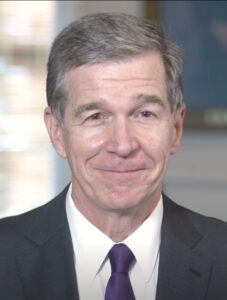Sustainable Fleet Series: Best Practices, Fleet Electrification, The 100 Best Fleets in The Americas & more Available to Stream Now
The North Carolina Clean Energy Technology Center’s (NCCETC) 2020 Sustainable Fleet Technology Virtual Conference featured the latest and greatest in sustainable fleet technology, operations and implementation. All 17 sessions focused on best practices to make fleets run more efficiently, with award-winner and expert speakers.
These webinars are available to stream online now with over 30 hours of knowledge and expertise from fleet managers across the country.
Also available on-demand, The 100 Best Fleets announced their 2020 Winners of The 100 Best Fleets in the Americas. In a later webinar, the top three fleets were featured in “100 Best Fleets: Top 3 Fleets Best Practices” to discuss their approach and best practices to distinguish themselves among the 38,000 public fleets in North America.
 The top fleet, San Luis Obispo County, California, explained how they used their “intent based leadership” program to transform their fleet and achieve 99 percent customer satisfaction. As the Fleet Manager in San Luis Obispo, Rocky Buoy led the multi-year campaign to improve inspections and ensure repairs were completed correctly the first time.
The top fleet, San Luis Obispo County, California, explained how they used their “intent based leadership” program to transform their fleet and achieve 99 percent customer satisfaction. As the Fleet Manager in San Luis Obispo, Rocky Buoy led the multi-year campaign to improve inspections and ensure repairs were completed correctly the first time.
Buoy stressed the importance of creating a culture “where people want to come to work” and investing in the fleet employees. “It’s paramount that we commit to training and developing our employees; investing in them is investing in the organization’s and their future,” Buoy said.
 Governor Roy Cooper made a statement at NCCETC’s “Electrification of Transportation and Climate Change Impact” webinar on September 30, 2020. Governor Cooper discussed Executive Order 80, which aims to reduce greenhouse gas emissions by 40 percent statewide and adopt 80,000 zero-emission vehicles by 2025 to achieve carbon neutrality by 2050.
Governor Roy Cooper made a statement at NCCETC’s “Electrification of Transportation and Climate Change Impact” webinar on September 30, 2020. Governor Cooper discussed Executive Order 80, which aims to reduce greenhouse gas emissions by 40 percent statewide and adopt 80,000 zero-emission vehicles by 2025 to achieve carbon neutrality by 2050.
“Carbon neutrality must happen globally by 2050 to avoid the worst impacts of climate change,” Governor Cooper stressed. “That will require transformation in all sectors of our economy, including transportation.”
Governor Cooper also joined 14 other governors and D.C. last summer to strive for all medium and heavy duty vehicles sold to be zero-emission vehicles by 2050. “North Carolina’s VW settlement funds will be invested to speed up school bus and transit electrification and put more chargers within reach of North Carolina drivers,” the governor added.
The “Idle Reduction an Easy Win” webinar featured a panelist of experts who dispelled idling myths and explained why idling wastes fuel, puts excess wear and tear on engines and systems and produces harmful emissions.
 One of the experts on the panel, Patricia Weikersheimer, is a coordinating writer for the Argonne National Laboratory which supports the U.S. Department of Energy’s Clean Cities Program. “At the national scale, idling in the United States consumes more than six billion gallons, adding up to more than $15 billion each year,” said Weikersheimer. Idle reduction can become a gateway for other initiatives that can reduce carbon emissions and support fleet sustainability.
One of the experts on the panel, Patricia Weikersheimer, is a coordinating writer for the Argonne National Laboratory which supports the U.S. Department of Energy’s Clean Cities Program. “At the national scale, idling in the United States consumes more than six billion gallons, adding up to more than $15 billion each year,” said Weikersheimer. Idle reduction can become a gateway for other initiatives that can reduce carbon emissions and support fleet sustainability.
Other topics covered in these webinars include “Best Practices & Lessons Learned in Charging Infrastructure Deployment”, “Renewable Fuels, Lubricants & Other Biobased Products” and a roundtable with the Sierra Club to share the results of a survey of local fleet managers and create a form to assist each other through fleet electrification.
To view all of the past webinars and sessions from NCCETC Clean Transportation, Sustainable Fleet Webinar Series from NCCETC and The 100 Best Fleets, as well as the Sustainable Fleet Technology Virtual Conference series and others, click here.
Stay tuned for future updates about the 5th annual 2021 Sustainable Fleet Technology Conference online at sustainablefleetexpo.com.